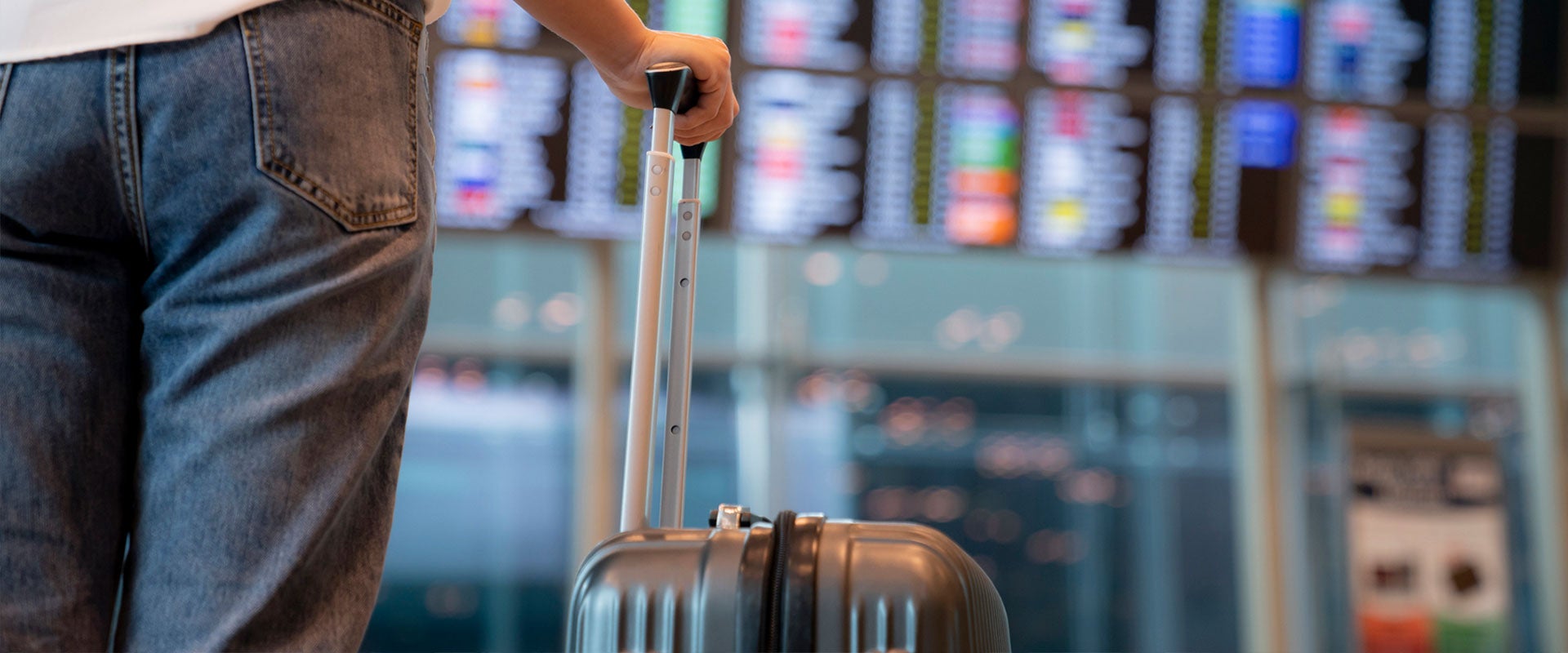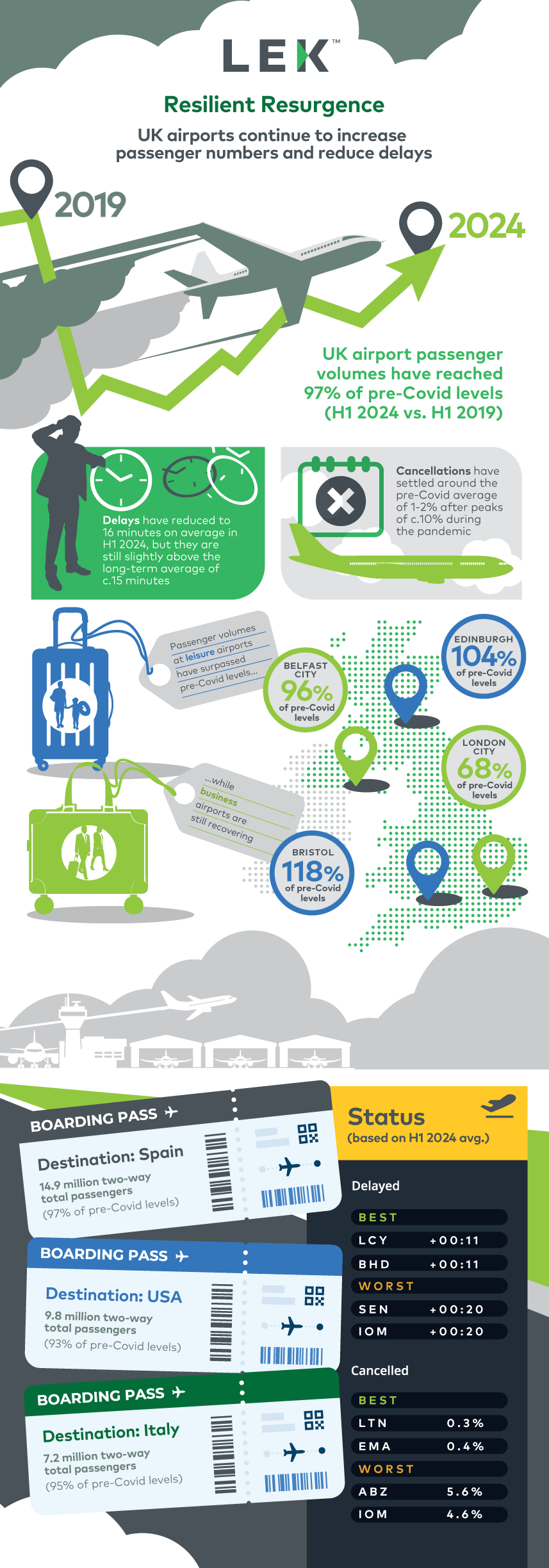
The path to recovery from Covid hasn’t been smooth for the UK aviation sector. There have been staff shortages, thinned-out schedules, cancellations driven by ATC outages, e-gate failures, environmental concerns and IT meltdowns. Couple that with a significant hike in ticket prices and it makes the recent steady recovery all the more remarkable.
The aviation industry’s steady and resilient recovery from the pandemic is evident in recent UK airport statistics, which are edging closer to pre-Covid performance. Passenger volumes surged to 97% of 2019 levels halfway through 2024, and potentially with a strong summer, we could see air travel demand back to where it was before the pandemic by the end of the year. This resurgence speaks to renewed consumer confidence and a highly durable market.
However, the recovery hasn’t been uniform across the sector. While leisure airports have experienced a strong rebound, surpassing pre-pandemic volumes, business-focused airports have lagged behind. This divergence reflects a broader, ongoing shift in travel patterns, with business travellers slower to return, likely influenced by the rise of remote working and virtual meetings in the past few years. Leisure travel, by contrast, appears to be driving much of the sector’s recovery, as people once again enjoy holidays and personal trips. We can see this most strikingly in the relative recovery of London City Airport (heavily reliant on business passengers) and Bristol (leisure focused). Furthermore, long-haul routes are behind short-haul routes in their recovery profile as schedules recover and passenger confidence returns.
Beyond passenger numbers, operational performance is steadily improving as well. Average delays have dropped to 16 minutes, just shy of the long-term average of 15 minutes. Cancellations, which had spiked to nearly 10% during the pandemic, have now stabilised at a much healthier rate of 1-2%, aligning with pre-Covid norms. These efficiency gains are crucial to rebuilding trust with travellers and ensuring smoother journeys.
Resilience in a changing landscape
These indicators reveal the resilience and adaptability of the UK aviation sector in this new landscape. While challenges remain – particularly for business travel – the overall picture is one of recovery and progression. Airports and airlines have recovered from the early issues post-Covid and have learned valuable lessons that have helped to reduce delays and normalise the level of cancellations.
Nevertheless, more needs to be done. Recent issues demonstrate how fragile parts of the system are, which, in some cases, is running at capacity. L.E.K.’s Sentimeter Tool, which uses machine learning to assess and categorise passenger reviews, indicates that patience could be wearing thin among customers. The recent focus of airports and airlines on improving customer experience is a journey that will take time and investment.
At L.E.K., we offer expert insights into these evolving trends and have investigated how technologies. communication and data sharing can improve customer experience and financial performance. Reach out to learn more about the factors driving the future of aviation, and how businesses can navigate the opportunities and challenges ahead.
12062024131209


